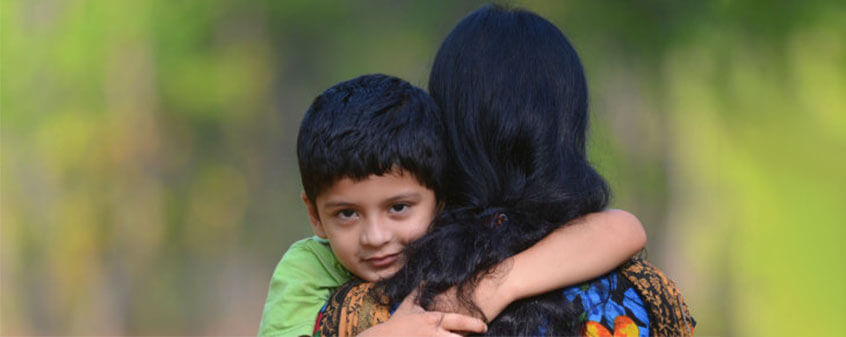Do You Believe In Just Letting ‘Kids Be Kids?’ They May Never Grow Up


The permissive parent
“Kya tum jaante ho main kiska beta hoon (Do you know whose son I am)?” How many of us have heard people bring this up in a fight or even in regular conversation? This is a perfect example of a comeback from children of permissive parents. A permissive parent is usually nurturing and warm but also one who refuses to set limits for the child.
They discuss things with their kids, give them choices, and ask for their opinions but they do not set consequences. They encourage free thought without putting much thought into their own actions. They are rather laid back and relaxed when it comes to parenting. They do not demand things from the kids and expect them to find a regulation system for themselves. At times it seems like it is the child who is controlling the parents.

They encourage free thought without putting much thought into their own actions.
Permissive parents are so immersed in fulfilling all the emotional needs of the child that they neglect other aspects of his or her personality. They want them to be a “child” in the sense that they do not expect them to take up any tasks at home or share any of the housework. Such parents also treat themselves as resources for their children: “If my son wants a toy, he shall get a toy. He has to be happy.”
They are indulgent and do not find anything wrong in whatever their children do. In an attempt to be democratic and leave children to take their own decisions, such parents do not intervene even when required. Intervention can be to get children to brush their teeth in the morning or a routine for bedtime. They do not want to do any of these as they believe that their children will set patterns for themselves and do not need adult help.
The children often turn out to be misfits who are overconfident and do not know where the limits of civilised behaviour begin and end. Children of such parents are often bossy and arrogant. They are used to parents who fulfil every whim and fancy and they carry this attitude through life.
Since they have never been set any limits, they are not sure of how far and how long they can go on. In an attempt to probably discover this, they take their impulsive behaviour to dangerous levels.

Tips for permissive parents
Permissive parents can turn into authoritative parents. They just need to watch their own actions. A little thought into the consequences of their actions will help them.
.Stop and think before you say yes to everything your child asks of you.
.Discuss with your child the why, how, when, and where of anything he wants to do.
.Keep track of what your child is doing. If he knows you are not bothered, he will not bother either.
.Decide whether a tantrum needs attention. Think of where over-pampering could lead your child.
The negligent parent
Remember Anand (Anupam Kher) who walked out of his daughter’s life in the film Daddy? He was a negligent parent. A negligent parent does exactly what the term says: neglect his children. A parent may become negligent due to many personal, emotional, and social reasons.
The parent may be an alcoholic or unemployed or just too scared to take responsibility of the child. Children of such parents do not have much respect for their parents. They lack role models and turn out to be disillusioned in life. They are more likely to engage in anti-social activities.
Why parenting style matters
Here are a few scenarios to distinguish how different parenting styles evoke varied responses to the same situations:
Five-year-old Rani pulls Geeta’s hair while playing in the garden.
Negligent parent: Doesn’t even know Rani is playing in the garden.
Permissive parent: Looks on but does nothing. Believes Rani and Geeta need to sort it out between themselves.
Authoritarian parent: Rani, this is not right. You will not come to the garden from tomorrow.
Authoritative parent: Rani, this is not right. Please apologise to Geeta. Say you are sorry you hurt her.
Sumeet, 13, wants to rent an adults-only movie and watch it at home.
Negligent parent: Doesn’t bother to find out what Sumeet is doing/watching.
Permissive parent: Allows him to rent it when Sumeet begs over and over again.
Authoritarian parent: Sumeet, How dare you even suggest something like this? You will not watch any movies from today.
Authoritative parent: Sumeet, this is not right. We will go to the DVD store and you can rent a DVD that all of us can watch at home. You can watch the movie once you are 18.

Research shows that children who have at least one authoritative parent are more successful in life than a pair of permissive parents or a pair of authoritarian parents.
Every style of parenting can impact the subconscious of the child. What, how, when, and why you do and say things as a parent makes a lot of difference to what the child downloads and makes a part of his belief system about himself and his capabilities. This download happens with none of the rational adult filters we use.
It determines the future course of your child’s life. Your style has a lot to do with your own subconscious and how you were reared. So be aware of what you are doing and modify it to suit the needs of this age and your child.
There may be times when each parent has a different style. The father may be permissive and the mother authoritarian. At such times clashes in opinion need to be discussed and dealt with at an adult level, rather than confusing the child with contradictory information.
Both sets of parents need to speak the same language. Research shows that children who have at least one authoritative parent are more successful in life than a pair of permissive parents or a pair of authoritarian parents.
You may be a mix of more than one type. Even though there has been considerable research on the styles of parenting and how they impact kids, parenting, at the end of the day, is very personal and unique. You may or may not be a representative of any one style. At times you may be a mix of more than one. So be aware of what you do and how you do things so that you are able to develop a positive subconscious bank for your child.
So, what is your parenting style?








